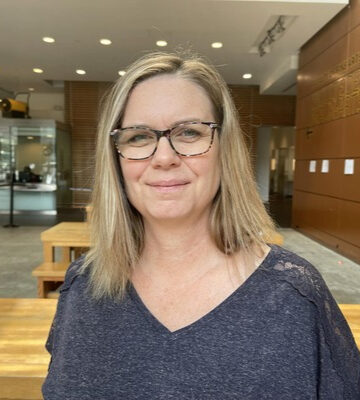Talks Design and Development
T-06: Bridging Practice & Design
Learning on the Job: Using the Tips to Set Yourself Up for Success on Your Work Term Resource to Navigate Workplace Professionalism
Professionalism is essential for workplace success, yet many students enter their work terms unsure of how to navigate professional expectations. Since its launch in 2024, the “Tips to Set Yourself Up for Success on Your Work Term” resource has provided Concordia University Institute for Co-operative Education students with actionable strategies to develop professionalism on the job-such as effective communication, adaptability and accountability-across diverse industries. This session will explore professional workplace behaviours, examples of applied learning, student testimonials, as well as suggestions for how to integrate it into work-integrated learning programs in different contexts. Join us to discover strategies for preparing students to thrive professionally in today’s dynamic workplaces.
Presenter(s)

Stefanie Corona
Concordia University, Montreal

Natalie Roper
Concordia University, Montreal
Interdisciplinary Thinking in Practice: Designing and Piloting the Thematic Issues Course
The Thematic Issues (TI) course was developed to scaffold interdisciplinary thinking for students in Dawson College’s Social Science program, preparing them for a capstone course where they independently explore contemporary issues through multiple disciplinary lenses. Supported by SALTISE, this initiative brought together nine instructors from seven disciplines who formed a Faculty Learning Community (FLC) to collaboratively design and pilot the course. Through regular meetings, instructors shared challenges, explored pedagogical strategies, and developed three adaptable course design models—Serial, Spiral, and Jigsaw—each supporting interdisciplinary integration in distinct ways. This paper presents the process and outcomes of the FLC’s work, including the affordances and limitations of each model, and how instructors tailored them to their disciplinary strengths and teaching contexts. The paper concludes with reflections on the role of the FLC in supporting interdisciplinary pedagogy and the ongoing collaboration with a research-practice partnership to refine these models further.
Building AI into Tools, Activities, and Course Designs
The rapid rise of generative AI models is echoing throughout society, and education is no exception. Initially celebrated for their potential to transform both work and learning, these systems are now under increasing scrutiny. Critics have raised significant concerns about biases within AI, the spread of convincingly authoritative misinformation or “hallucinations”, and unresolved issues related to intellectual property, privacy, and the environmental toll of training these data-hungry models. In education, additional challenges — such as threats to academic integrity, overly simplistic or decontextualized responses, and worries about stifling critical thinking skills — further cast doubt on AI’s role in teaching. As the presence of generative AI in education grows, we are left to ask: What principles should guide us in incorporating AI into our pedagogical designs to maximize its potential while mitigating these risks? This talk will briefly outline several ongoing projects that attempt to incorporate Generative AI as an aide for course design (virtualTA, a future version of SALTISE’s CourseFlow) as well as harnessing Generative AI’s ability to give voice to convincingly wrong statements (a future version of SALTISE’s myDALITE) in a safe student-facing context.


